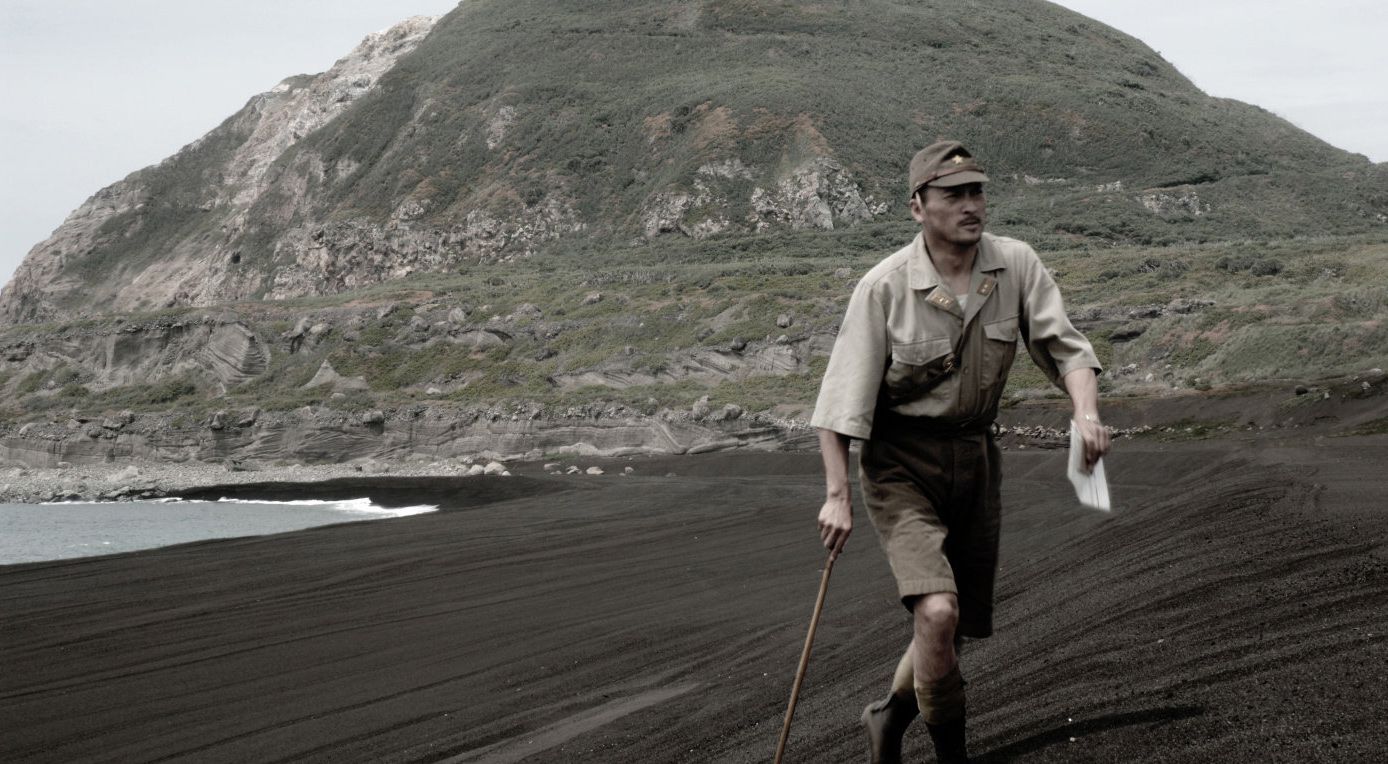By Chlotrudis Independent Film Society
Rating: 5 cats
Director: Clint Eastwood
Starring: Kazunari Ninomiya | Ken Watanabe | Tsuyoshi Ihara

Country: united_states
Year: 2007
Running time: 141
IMDB: http://www.imdb.com/title/tt0498380/
Bruce says: “Clint Eastwood has proven himself a gifted filmmaker over the years but there is nothing in his portfolio
indicating he would create one of the best war films in the history of cinema. The Hollywood hype machine declared his other 2006 war film, THE FLAGS OF OUR FATHERS, as possibly the best film of the year probably because it depicts the American experience and its aftermath. Both films are about the battle between the U.S. and Japanese forces on Iwo Jima. Most grade school students know who won the battle since the 1945 image of U. S. Marines raising the American flag on Iwo Jima is one of the primary icons of the twentieth century, a proof that righteousness triumphs over evil. Just how evil were these Japanese? LETTERS FROM IWO JIMA answers that question, making fools of all overzealous, name-calling nationalists, no matter what country they are defending.
“As the film begins we see the Japanese forces stationed on Iwo Jima to defend Japan from the approaching US naval forces. Iwo Jima is a tiny (8 square miles) arid island, hot and buggy. Many of the Japanese soldiers suffer from stomachs made queasy by the wretched conditions. A new general arrives to replace on that did not want the job of fortifying Iwo Jima. General Tadamichi Kuribayashi (Ken Watanabe) immediately has the soldiers stop digging trenches on the beaches in favor of building a complicated system of tunnels in the mountains above, points from which they can fire down on the enemy rather than being rolled over during the beachhead. Junior officers are overly strict and set in their ways. They beat the enlisted men into submission. When General Tadamichi Kuribayashi suggests that respect is a better incentive for achieving objectives, his underlings resist change. The men on Iwo Jima have been led to believe that the Japanese Navy will provide reinforcements to fend off the approaching ships. That plan is abandoned but not immediately communicated to the general; it is announced by a new arrival. This seriously affects the morale of the troops. A new officer, Baron Nisha (Tsuyoshi Ihara) arrives with his horse, hardly a necessary adjunct for defending a beachhead maneuver. Nisha is an Olympic medalist, speaks English and has spent
time in the U.S.
“The Americans finally arrive and the results are not good. The Japanese soldiers caught outside the tunnels are all killed and only one American is captured. Some of the Japanese soldiers object to the decision to tend to the wounded American. One says ‘Americans would not treat us!’ ‘How would you know, have you ever met one?’ questions Nisha. Nisha chats with the American, learning he is from Oklahoma. The American is awed by Nisha’s English and astonished that Nisha has been the guest of Mary Pickford and Douglas Fairbanks, the reigning royalty of Hollywood, territory far removed from his simple background.
“A prevailing notion among the Japanese during World War II was that self destruction is better than being shot down by the enemy. To illustrate that point, a Eastwood interjects a grenade scene – one of the most excruciating scenes I’ve ever witnessed on screen. LETTERS FROM IWO JIMA communicates the hopes, fears and intense love many of the men experience as they write letters home, letters they know will likely never be delivered. Eastwood attacks all the important issues of war head-on. LETTERS FROM IWO JIMA raises many questions about the chain of command mentality but is careful not to overly prejudice the viewer. And it also raises questions about how patriotism obfuscates the ability to view humanity on a larger scale. 5 cats”
